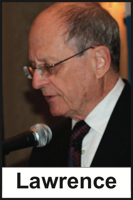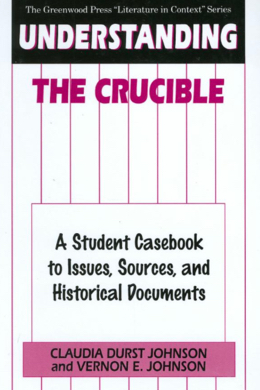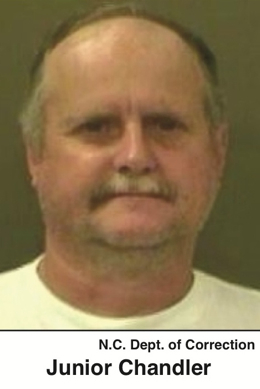Rascals case in brief
In the beginning, in 1989, more than 90 children at the Little Rascals Day Care Center in Edenton, North Carolina, accused a total of 20 adults with 429 instances of sexual abuse over a three-year period. It may have all begun with one parent’s complaint about punishment given her child.
Among the alleged perpetrators: the sheriff and mayor. But prosecutors would charge only Robin Byrum, Darlene Harris, Elizabeth “Betsy” Kelly, Robert “Bob” Kelly, Willard Scott Privott, Shelley Stone and Dawn Wilson – the Edenton 7.
Along with sodomy and beatings, allegations included a baby killed with a handgun, a child being hung upside down from a tree and being set on fire and countless other fantastic incidents involving spaceships, hot air balloons, pirate ships and trained sharks.
By the time prosecutors dropped the last charges in 1997, Little Rascals had become North Carolina’s longest and most costly criminal trial. Prosecutors kept defendants jailed in hopes at least one would turn against their supposed co-conspirators. Remarkably, none did. Another shameful record: Five defendants had to wait longer to face their accusers in court than anyone else in North Carolina history.
Between 1991 and 1997, Ofra Bikel produced three extraordinary episodes on the Little Rascals case for the PBS series “Frontline.” Although “Innocence Lost” did not deter prosecutors, it exposed their tactics and fostered nationwide skepticism and dismay.
With each passing year, the absurdity of the Little Rascals charges has become more obvious. But no admission of error has ever come from prosecutors, police, interviewers or parents. This site is devoted to the issues raised by this case.
On Facebook
Click for earlier Facebook posts archived on this site
Click to go to
Today’s random selection from the Little Rascals Day Care archives….
Click for earlier Facebook posts archived on this site
Click to go to
Today’s random selection from the Little Rascals Day Care archives….
Chaplain writes memoir about supporting defendants
Nov. 21, 2011
 Raymond Lawrence, the New York City chaplain who founded the Committee for Support of the Edenton Seven, was an attentive and often appalled observer at Bob Kelly’s trial. This passage is excerpted from a memoir now posted in its entirety on the Bookshelf:
Raymond Lawrence, the New York City chaplain who founded the Committee for Support of the Edenton Seven, was an attentive and often appalled observer at Bob Kelly’s trial. This passage is excerpted from a memoir now posted in its entirety on the Bookshelf:
“Among the more obscene performances I witnessed by the prosecution was a long argument that Robert Kelly had had vaginal intercourse with a five-year-old girl.
“On a screen about four feet square the prosecutor displayed a color slide the girl’s genitalia, with two adult thumbs shown pulling back the labia to display the hymen and vaginal opening. The hymen appeared fully intact, covering most of the vaginal opening. The prosecutor thus spent what I recall as hours arguing that the stretch marks in the hymen were evidence of adult penile penetration.
“I wondered why the defense attorney did not rise up and ask if this were Alice in Wonderland…. It was as if I had entered an alternate universe.”
Salem to Edenton was a road heavily traveled
 Feb. 9, 2015
Feb. 9, 2015
The Little Rascals Day Care case has often been likened to the Salem Witch Trials, but this lengthy list from “Understanding The Crucible: A Student Casebook to Issues, Sources, and Historical Documents” by Claudia Durst Johnson and Vernon Johnson (1998) drives home the point:
- Both involved children as accusers.
- Convictions were determined almost solely on the basis of the children’s testimony.
- Everything escalated rapidly – the number of children involved, the number of the accused, and the different kinds of charges.
- The minds of the children were in both cases manipulated by adults.
- Charges were instigated by adults who held grudges against the accused.
- There was an absence of corroborating evidence.
- “Fanciful” testimony was regarded seriously. In Salem, it was spectral evidence. In the twentieth-century cases, it included children’s stories of spaceships, sharks, and ritual murder.
- Community hysteria arose from the feeling that evil – witches and sex abusers – had access to their children.
- “Poppets” or dolls were involved. In the Salem trials, little dolls were immediately seized upon as poppets used by witches to pierce with pins with the object of inflicting torture. In sexual abuse cases, “anatomically correct” dolls were used by psychologists to coach details from the children.
- There were charges that satanic rituals were conducted.
- The prosecution showed a single-minded determination, by threat or bribe, to get the accused to confess.
- The prosecution showed a single-minded determination, by threat or bribe, to get children to disclose more and more details of misconduct without regard to truth.
In 1993, predicting a historic marker – and more
 June 18, 2015
June 18, 2015
Given my thoroughly unsuccessful attempt to persuade the State of North Carolina to erect a historic marker recalling the Little Rascals Day Care case, I had to laugh at discovering this 1993 letter to the Elizabeth City Daily Advance:
“Dear Editor:
“The year is 2022. The town of Edenton, last stop on the witch-hunt trail beginning in Salem, Mass., with an intermediate stop at Joe McCarthy’s office in Washington, D.C., has finally decided to build a historic marker. (It will be) directly across the street from the town’s $4 million tour center, where people gather from across the nation (indeed, from around the world) to see and feel and learn about the Edenton witch hunts of 1990-1993….
“It is here where the walking tours start, where the T-shirts are sold and where the buses disgorge their curious cargo….”
Letter writer David W. Tucker of San Francisco – who in all likelihood had recently watched “Innocence Lost: The Verdict” – expressed confidence that the marker would eventually be approved, even if not by 2022:
“The only question is whether the marker will speak of the community’s collective shame
or, instead, of the individuals and groups of good will and courage who brought lasting honor to Edenton by rescuing Bob Kelly, Dawn Wilson, the Twiddy family and the others from the nightmare that fear, hate and ignorance visited upon them….”
How to make ‘facts and science ultimately irrelevant’
 March 8, 2015
March 8, 2015
“As public debate rages about issues like immunization, Obamacare, and same-sex marriage, many people try to use science to bolster their arguments. And since it’s becoming easier to test and establish facts – whether in physics, psychology, or policy – many have wondered why bias and polarization have not been defeated. When people are confronted with facts, such as the well-established safety of immunization, why do these facts seem to have so little effect?
“Our new research, recently published in the Journal of Personality and Social Psychology, examined a slippery way by which people get away from facts that contradict their beliefs…. (They) reframe an issue in untestable ways. This makes potential important facts and science ultimately irrelevant to the issue….
“These experiments show that when people’s beliefs are threatened, they often take flight to a land where facts do not matter. In scientific terms, their beliefs become less ‘falsifiable’ because they can no longer be tested scientifically for verification or refutation….”
– From “Why People ‘Fly from Facts’ ” by Troy Campbell and Justin Friesen in Scientific American (March 3)
And what allegations could be more “untestable” than pure fantasy? As Junior Chandler knows too well, “….It’s extremely hard to get help to prove my innocence when there isn’t a crime committed to begin with.”











0 CommentsComment on Facebook